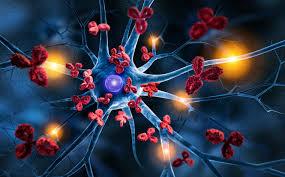Multiple Sclerosis is a chronic neurological disorder that reshapes a person’s life in countless ways. It is a disease where the body mistakenly attacks its own nervous system, damaging the protective layer that allows nerves to send clear messages. As the communication between the brain and the body becomes disrupted, everyday tasks turn into challenges. Yet within those challenges, there are stories of resilience, courage, and determination that define the MS journey.
When the Body Sends Mixed Signals
The first signs of MS often feel confusing. Some individuals describe a tingling sensation that travels down their body when they bend their neck. Others feel sudden weakness in the legs or experience repeated episodes of blurred vision. These symptoms can disappear and return unexpectedly, making the person question whether something serious is happening. What they do not realize at first is that these are early signals of nerve damage that continues beneath the surface.
The immune system attacks the myelin coating around nerves, creating small scars that disrupt signals. With each scar, the communication between the brain and different parts of the body becomes less precise. This is why symptoms of MS vary so widely and why no two people with MS share the exact same experience.
The Mental and Emotional Impact
Beyond the physical symptoms, MS delivers emotional challenges that are often overlooked. For many, the greatest struggle is not the numbness or the weakness but the uncertainty. Waking up not knowing whether their speech will be clear, whether their legs will cooperate, or whether they will be able to hold objects firmly creates a constant emotional burden.
The mental strain becomes heavier when others cannot see their discomfort. People with MS often hear statements like “you look fine” while internally battling fatigue, dizziness, or cognitive fog. This mismatch between appearance and reality leads to isolation and emotional exhaustion. Counseling and support groups help individuals from feeling alone in these struggles.
An Ongoing Search for Answers
Diagnosis of MS requires advanced testing. MRI scans show lesions in the brain and spinal cord, while spinal fluid analysis looks for specific antibodies. Doctors also examine medical history and symptoms to ensure the correct diagnosis. This process is not always quick. For many patients, the uncertainty during the diagnostic phase is one of the hardest periods of their lives because they know something is wrong but do not yet understand what it is.
Once diagnosed, the focus shifts to long-term management. Even though MS cannot be cured, early diagnosis allows doctors to begin treatments that may slow the disease significantly.
Treatments That Change the Future
Modern treatments for MS are designed to control the immune system and protect nerve fibers. These disease-modifying therapies have transformed the outlook for patients by reducing flare-ups and slowing the progression of disability. In addition to these treatments, doctors may prescribe medications for pain, muscle stiffness, or mobility issues.
Lifestyle changes support medical treatment as well. Patients often adopt exercise routines that strengthen muscles without causing fatigue. Stretching and swimming help maintain flexibility and reduce discomfort. A nutritious diet supports overall well-being, and vitamin D supplements may be recommended for those who are deficient.
Daily Life With MS
Living with MS means adapting constantly. Fatigue may limit activities that once felt easy. Balance issues may require assistive devices. Cognitive symptoms may affect work performance or daily planning. But despite these challenges, many people continue working, studying, traveling, and achieving personal milestones with determination.
Families and caregivers play an important role. Their encouragement, understanding, and patience help reduce stress and keep the patient emotionally strong. Small adjustments at home, such as safety support, organization, and physical comfort, make daily life easier.
The Hope That Science Offers
Research on MS is progressing rapidly. Scientists are exploring ways to repair damaged myelin, which may lead to therapies that restore lost function. Stem-cell treatments are being studied for their potential to reset the immune system. With every discovery, the future becomes brighter for patients, giving them renewed optimism and control over their condition.
Conclusion
Multiple Sclerosis may challenge the body, mind, and emotions, but it does not define a person’s entire life. With better understanding, early treatment, strong support systems, and hope backed by scientific progress, individuals with MS continue to live meaningful, empowered, and inspiring lives. Their journey is not defined by the disease but by their strength in facing it every day.



